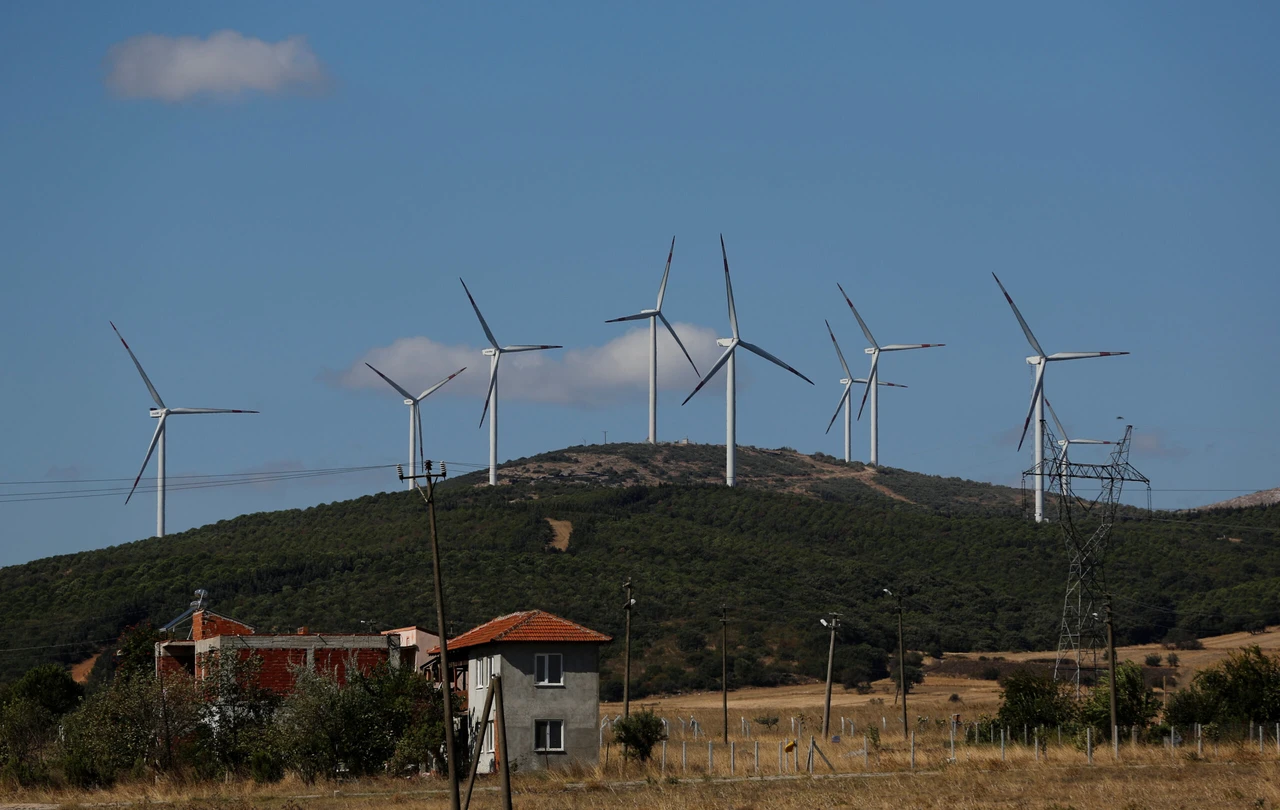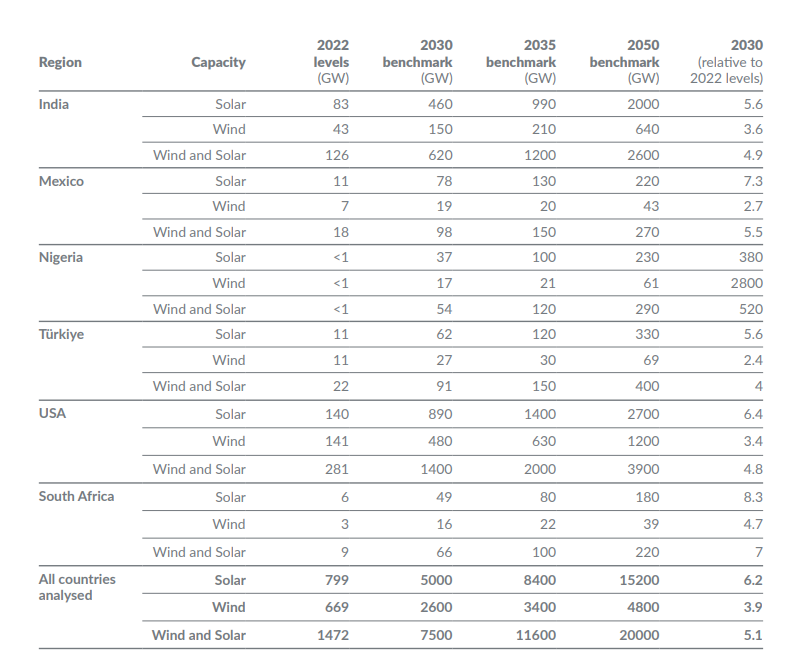Türkiye’s shift to wind, solar energy stalls in 2023
 Wind turbines used to generate electricity are seen near the town of Susurluk in Balikesir province, Türkiye, August 31, 2017. (Reuters Photo)
Wind turbines used to generate electricity are seen near the town of Susurluk in Balikesir province, Türkiye, August 31, 2017. (Reuters Photo)
Türkiye’s shift toward renewables stalled in 2023, with wind production declining for the first time and Poland surpassing Türkiye in solar generation.
A report by Climate Analytics and NewClimate Institute highlights the urgent need for Türkiye to boost its wind and solar energy capacity significantly. To meet climate goals, production from these sources must triple by 2030.

Türkiye’s current challenges in renewable energy
The report emphasizes that by 2050, solar energy is expected to provide over half of Türkiye’s total electricity, while wind energy will contribute about one-third. However, the country became the second-largest coal-fired electricity producer in Europe in 2023, complicating the transition to renewable energy.
In 2023, the shift toward wind and solar energy slowed, with wind production declining for the first time and Poland surpassing Türkiye in solar generation. Despite rising electricity demand, coal usage has increased since 2021, hindering the renewable transition.

Looking ahead: Future goals, actions
Neil Grant from Climate Analytics stresses that Türkiye must promote its renewable resources more effectively. Current policies are insufficient to meet necessary climate targets. The National Energy Plan aims for 33 gigawatts of solar and 18 gigawatts of wind capacity by 2030. However, forecasts suggest solar capacity could reach 39 gigawatts by 2028, while wind capacity may grow to 18 gigawatts.
Next year, the government is expected to present new targets for 2035, aiming for 122 gigawatts of solar and 30 gigawatts of wind capacity. Without ambitious targets and stronger policies, the country’s energy future could be at risk, impacting both its economic sustainability and environmental commitments.



